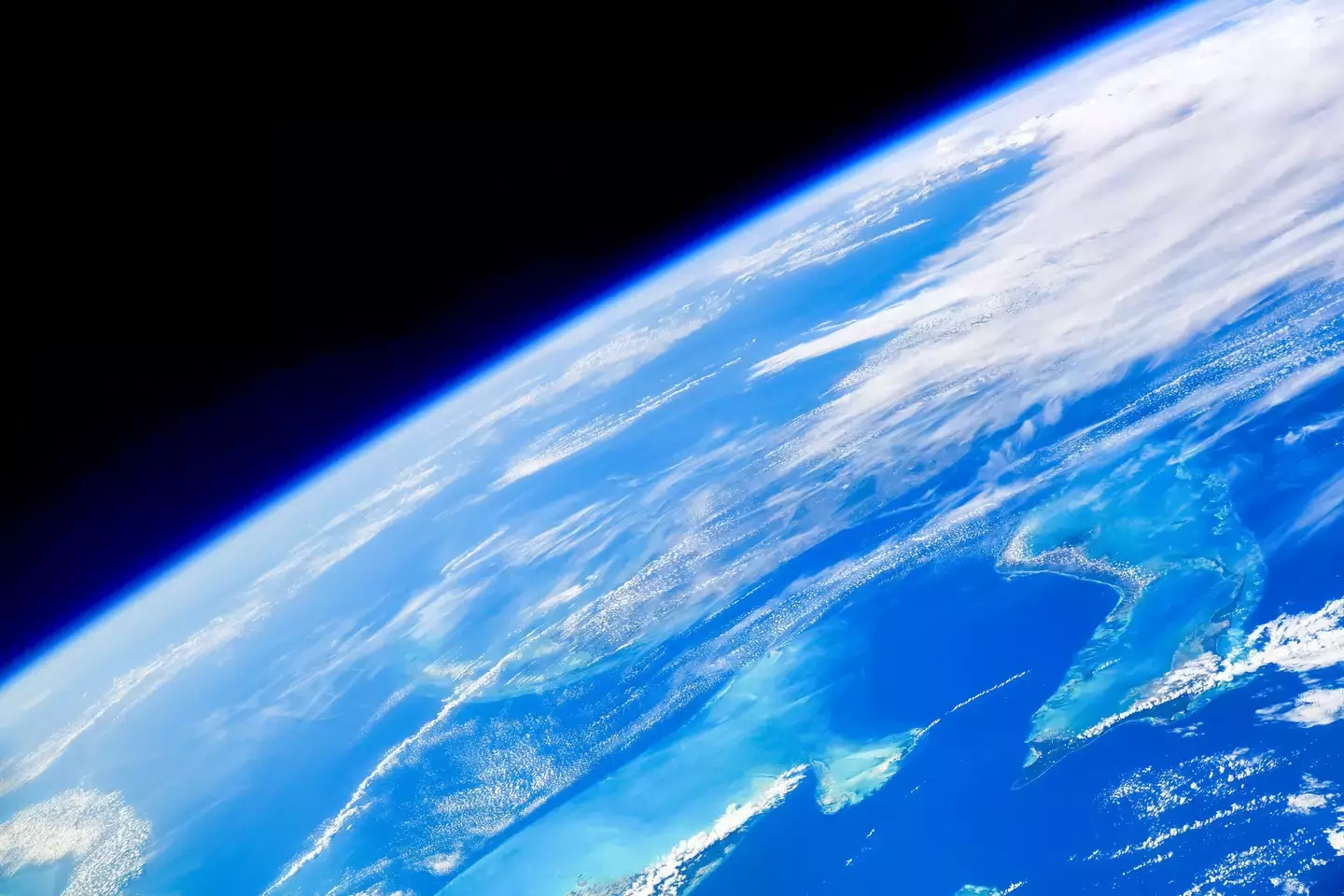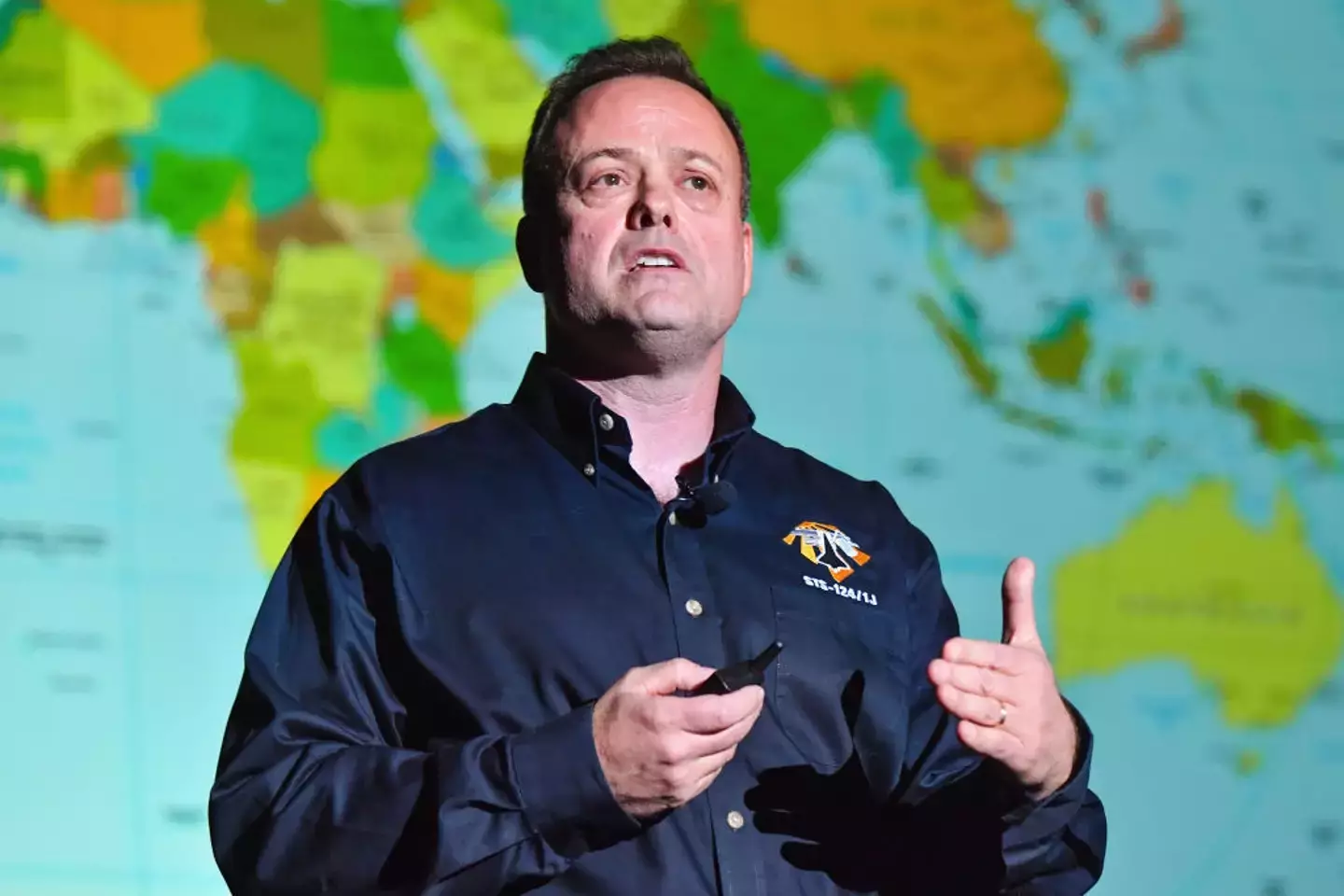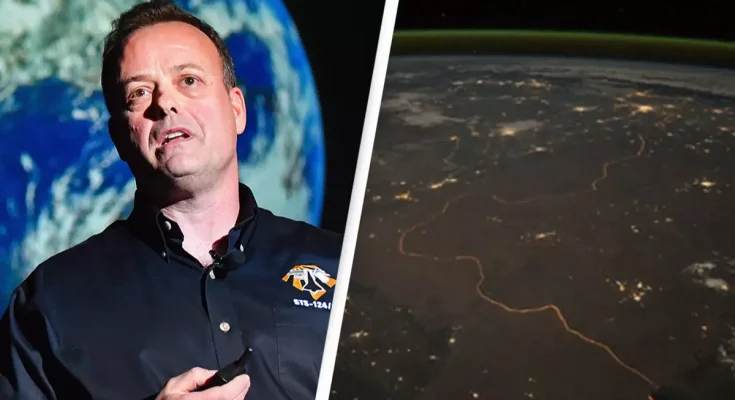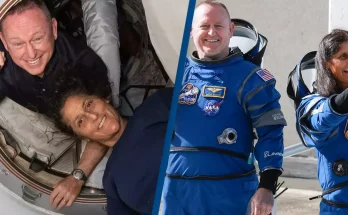Ronald Garan has explained how viewing the Earth from space gave him the ‘overview effect’
Former astronaut Ronald Garan came to a both haunting and beautiful conclusion while staring at Earth from space.
While a space cadet for NASA, Ronald has spent a total of 178 days in space and has come to a crushing realization in the process.
Now before you flat-earthers get excited, no he didn’t see the world was flat or that we are riding on the back of a cosmic turtle or some other odd theory.
In reality, he came to a realization about humanity. Ronald believes we are all living a lie and the 62-year-old might have a point.
Having flown 71 million miles in 2,842 orbits throughout his career at NASA, Ronald has surely felt the ‘overview effect’ more than once.
The term is used for a phenomenon astronauts go through as they get an ‘unexpected and overwhelming feeling of emotion’ looking at Earth from space.

Now that really is a once in a lifetime view (Getty Stock Image)
This has likely had an impact on Ronald on one occasion when he was aboard the International Space Station and spotted a long line of lights stretching across Asia.
He then realized it was a man-made structure of the border between India and Pakistan.
In a TED talk from 2016, he said: “Initially, I wrote this off as a strange reflection of moonlight on a river.
“I was very intrigued. It turns out that this was not a natural reflection at all.
“I’ve always said that you can’t see borders from space, apparently I was wrong.
“The Earth, when viewed from space, almost always looks beautiful and peaceful.
“But was this an example of man made changes to the landscape that was clearly visible from space.”
This has tied into his belief that humans are living a lie and have the wrong outlook on day-to-day life.
In an interview with Big Think, he explained: “We keep trying to deal with issues such as global warming, deforestation, biodiversity loss as stand alone issues when in reality they’re just symptoms of the underlying root problem and the problem is, that we don’t see ourselves as planetary”.

Ronald has flown 71 million miles in 2,842 orbits throughout his career at NASA. (Erika Goldring/Getty Images)
“When I looked out of the window of the International Space Station, I saw the paparazzi-like flashes of lightening storms, I saw dancing curtains of auroras that seemed so close it was as if we could reach out and touch them and I saw the unbelievable thinness of our planet’s atmosphere.
“In that moment I was hit by the sobering realization.”
Ronald came to the understanding that every living thing on Earth was being kept alive by a very thin layer and people don’t realize just how connected we all are.
“I saw an iridescent biosphere teaming with life, I didn’t see an economy, but since our human-made systems treat everything including the very life-support systems of our planet as the […] subsidiary of the global economy, it’s obvious from the vanish point of space that we’re living a lie,” he added.
Ronald has urged people to shift their thinking for the overall benefit of humanity and move from thinking ‘economy, society, planet to planet, society, economy.’
Featured Image Credit: Erika Goldring/Getty Images/NASA



